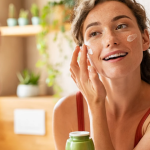Regarding skin care, acne is a common struggle for people of all ages. Though it’s often linked with adolescence, acne can persist well into adulthood, affecting self-esteem and usually leading to a frustrating search for clear skin. If you’re dealing with acne breakouts, you’ve probably tried numerous products, lifestyle changes, and maybe even dietary tweaks—all to achieve a fresh, clear complexion.
Here, we’ll explore why acne occurs and how to take practical, effective steps to prevent future breakouts. By understanding acne’s root causes and learning the preventive measures that work, you can get closer to achieving healthy, clear skin.
Understanding Acne
Acne is an inflammatory skin disorder that occurs when hair follicles become blocked with oil, dead skin cells, and occasionally bacteria. It can present as blackheads, whiteheads, pimples, or even more severe cysts, often appearing on the face, shoulders, back, and chest. Acne’s origins are multifaceted, influenced by hormones, genetics, and personal lifestyle decisions. Let’s briefly examine each factor.
Hormones
Hormonal fluctuations, particularly increased androgens, can significantly impact the skin. Hormonal changes frequently trigger an increase in sebum production, the skin’s natural oil, which can play a role in the development of acne. Excess oil production increases the chance of clogging the pores. Clogged pores create an ideal environment where acne-causing bacteria can thrive, leading to breakouts. Such hormonal changes commonly occur during puberty, when the body undergoes rapid transformations. Additionally, menstrual cycles, pregnancy, and certain conditions like polycystic ovary syndrome (PCOS) can also cause hormonal shifts that impact the skin. These factors can lead to increased sebum production and potentially worsen acne.
Genetics
Genetics can heavily influence a person’s predisposition to developing acne. If a close family member has experienced acne, you may be more prone to it. Specific genetic traits, such as skin type and pore size, can be inherited and may influence the likelihood of acne development. Genetics can also affect sebum production levels, one of the main factors in acne formation. Genetics often make people with oily or combination skin types more susceptible to breakouts. Genetic predisposition does not guarantee acne but does increase the risk. Recognizing this influence helps individuals understand that some factors contributing to acne may be out of their control.
Lifestyle Factors
Lifestyle choices and daily habits are also important determinants of skin health. Diet, skincare routines, stress levels, and sleep quality all impact the skin. High-stress lifestyles, for instance, can lead to hormonal changes that promote oil production, making skin more prone to acne. Certain foods, particularly those high in sugar or processed ingredients, can also trigger inflammation, which may contribute to acne formation.
Poor sleep habits may disrupt hormonal balance and affect the skin’s ability to repair itself overnight. Consistently following a healthy lifestyle, such as maintaining a balanced diet and getting enough sleep, can lower the chances of experiencing breakouts. You should consider and adjust lifestyle factors to support clear, healthy skin.
Knowing these underlying causes is the first step to effective prevention. Here are some strategies to maintain clearer skin and avoid acne breakouts.
Preventive Measures for Clear Skin
1. Building a Smart Skincare Routine
A consistent and gentle skincare routine is essential to keeping acne at bay. Here are the fundamentals:
- Gentle Cleansing: Start with gentle cleansing using a mild, non-comedogenic cleanser that won’t clog pores. Cleanse your face twice daily—once in the morning and once before bed—and after sweating activities. Skip the harsh scrubs, which can irritate the skin and worsen acne. A mild, consistent routine helps maintain your skin’s clarity and balance.
- Moisturizing: Hydrating your skin is crucial, even if it’s naturally oily. Choose a lightweight, oil-free moisturizer tailored to your skin type for optimal care. Well-hydrated skin is less likely to produce excess oil, which can prevent clogged pores and reduce the risk of breakouts. Applying moisturizer after cleansing helps restore moisture balance and maintain a healthy skin barrier. A proper moisturizer ensures your skin stays nourished without adding extra oil.
- Sun Protection: Sun exposure can aggravate acne and cause skin damage, such as scarring. Applying a broad-spectrum sunscreen with SPF 30 or higher daily is essential for all skin types. It is crucial to shield your skin from harmful UV rays, which can aggravate acne and accelerate aging. Choose non-comedogenic sunscreens to prevent clogged pores. Sun protection is essential for an effective skincare routine.
2. Healthy Lifestyle Habits
Skincare is only part of the solution. Lifestyle choices can significantly impact acne, so integrating these habits can be just as important.
- Diet: Emerging research suggests that certain foods may contribute to acne breakouts. High-glycemic foods, dairy, and sugary treats are among some individuals’ most common dietary triggers. To support healthier skin, try adopting a balanced diet that includes vegetables, whole grains, lean proteins, and healthy fats. Incorporating foods with anti-inflammatory benefits, like omega-3-rich salmon and leafy greens, can also support skin health. Choosing nutrient-dense foods over processed ones may help reduce the frequency and severity of breakouts.
- Stress Management: Stress can worsen acne by releasing hormones that stimulate oil production in the skin. Consider meditation, yoga, or deep breathing exercises to manage stress levels. These stress-reducing practices promote hormonal balance, which can lessen the impact of stress-induced breakouts. Adopting these strategies can enhance the overall health of your skin. Reducing stress is a simple but effective way to support clear skin.
- Exercise and Hydration: Regular exercise benefits the skin by improving blood circulation and promoting oxygen flow, which supports detoxification. Maintaining hydration is just as vital as it aids in flushing out toxins and promoting clearer skin. Be sure to cleanse your skin after exercise to eliminate sweat, dirt, and oil that could block pores. Hydration and proper hygiene together contribute to a balanced and healthy complexion. Committing to exercise and hydration can positively affect your skin’s appearance.
- Sleep: Prioritizing sleep is essential for maintaining healthy, clear skin. During sleep, the body repairs and regenerates itself, including the skin, which is crucial for a healthy complexion. Aim for 7-9 hours of sleep each night to support skin health and overall well-being. Good sleep helps the skin remain resilient against stressors and environmental damage. By prioritizing sleep, you give your skin a vital boost in its natural healing process.
3. Over-the-counter (OTC) Treatments for Acne
Sometimes, incorporating specific products into your skincare routine can make all the difference in preventing acne breakouts. Several OTC treatments are effective for managing mild to moderate acne:
- Benzoyl Peroxide: Benzoyl peroxide is a potent antibacterial ingredient commonly used to combat acne-causing bacteria. It’s especially effective for treating red, inflamed acne and is available in various strengths. Beginning with a lower concentration of benzoyl peroxide can reduce the risk of side effects, especially for first-time users. Monitor your skin’s response, as this ingredient may cause dryness and peeling. Using benzoyl peroxide consistently while being mindful of your skin’s tolerance can be beneficial in managing acne.
- Salicylic Acid: Salicylic acid, a beta-hydroxy acid, effectively exfoliates the skin and clears clogged pores, making it perfect for tackling blackheads and whiteheads. It penetrates deep into pores to break down excess oil and dead skin cells. However, because it can dry, using it in moderation is essential, particularly if you’re new to it. Always follow up with a gentle moisturizer to avoid excessive dryness. When used correctly, salicylic acid can be a powerful tool in an acne prevention regimen.
- Other Topical Options: Sulfur, tea tree oil, and retinoids are popular alternative treatments for managing acne. Sulfur absorbs excess oil and has a natural drying effect that can reduce acne’s severity. Tea tree oil, a natural antibacterial, offers antimicrobial benefits and is often a gentler alternative to other acne treatments. Retinoids, derived from vitamin A, promote cell turnover and help prevent pores from clogging, though they can initially irritate. Gradually incorporating retinoids into your routine can help minimize any potential skin sensitivity.
When to Seek Professional Help
Some cases of acne, particularly those that are severe, painful, or persistent, require professional treatment. Recognizing the right time to see a dermatologist is crucial to preventing acne scars and long-term skin damage.
Signs of Severe Acne
If you’re experiencing deep, painful cystic acne, it may be a sign of severe acne that requires professional attention. Cystic acne is difficult to address with over-the-counter treatments due to its deep formation under the skin. It causes intense inflammation, redness, and tenderness, often leading to permanent scarring if not properly treated. Attempting to self-treat with standard products can sometimes worsen cystic acne, as these treatments may not penetrate deeply enough.
Severe acne may also indicate underlying hormonal imbalances or other health issues that need to be addressed by a healthcare provider. When acne doesn’t respond to over-the-counter treatments, it’s typically a good idea to consult a dermatologist. A professional can evaluate your skin condition and recommend a more targeted treatment plan to prevent future breakouts and minimize scarring.
Prescription Treatments
For individuals with moderate to severe acne, dermatologists can prescribe treatments that offer more robust results than over-the-counter options. Oral antibiotics, for example, are commonly used to reduce the bacteria contributing to acne and can help with inflammation. Topical or oral retinoids, derived from vitamin A, help accelerate cell turnover and prevent pore blockages. For those whose acne is triggered by hormonal changes, treatments like birth control pills can be effective in managing flare-ups.
Prescription-strength retinoids, like tretinoin, work at a deeper level than their over-the-counter counterparts, providing more substantial results. While these treatments may have side effects, dermatologists can guide you on using them safely and effectively. Prescription treatments are often the most effective solution for those who have struggled with acne for an extended period without success from other methods.
Prevent Acne Breakouts with a Gentle Skincare Routine
Clear skin is a journey that demands patience, consistency, and, occasionally, some trial and error. You can significantly reduce your chances of breakouts by building a gentle skincare routine, adopting healthy lifestyle habits, and using targeted acne treatments. If you’ve tried multiple approaches and still struggle with acne, remember that professional help is always available. Ultimately, the key is to treat your skin kindly and give it the time it needs to improve.


